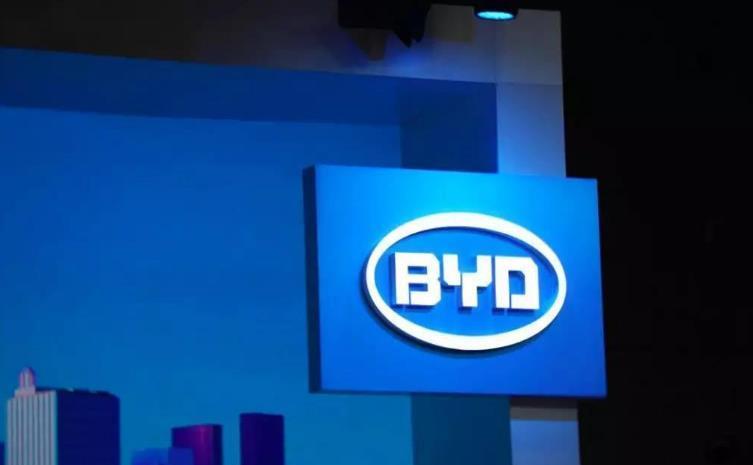
Text/JING Audit/Zi Yang Correction/Zhi Qiu
Affected by the carbon neutrality policy, the penetration rate of new energy vehicles in the mainland has been continuously improved, and the market size has continued to expand. Many manufacturers have also seized the development opportunities to establish a leading position in the new track.
With the help of new energy vehicles, BYD has become the first car company in mainland China. And in the long run, BYD's advantages in the new energy vehicle market will become greater and greater, and its position will be difficult to shake.
According to the sales data of global new energy vehicle brands released by CleanTechnica, BYD's new energy vehicle sales reached 590,000 units in 2021, an increase of 220% year-on-year. In contrast, in the global new energy vehicle market in 2021, the sales growth rate is 108%, and the development momentum can be seen.
In fact, according to the development of this trend, BYD is likely to become a brother of global new energy vehicles. After all, BYD's current sales volume is second only to Tesla and ranks second in the world.
There are two main reasons why BYD can deliver such a brilliant report card:
First, the rapid development of China's new energy vehicle market has driven domestic manufacturers to grow at a faster rate; second, BYD has been laying out in the field of new energy vehicles for many years and does have the ability and conditions to quickly seize the market. This is also an important reason why the author believes that BYD has the hope of surpassing Tesla and becoming a brother of global new energy vehicles.
As we all know, for new energy vehicles, the three-electric technology is "fundamental". BYD is the only domestic car company that has fully mastered the technology of three electrics. This will ensure that BYD will not be stuck in the neck of overseas manufacturers or institutions in key production links. Not only that, BYD's self-developed technology will also lay the groundwork for it to maintain an absolute advantage in the industry competition.
In detail, BYD's three-electric technology is lithium iron phosphate blade battery, permanent magnet synchronous motor and SiC MOSFET electronic control system.
Among them, lithium iron phosphate blade batteries have been well received by industry insiders since their release. Judging from the test results, lithium iron phosphate blade batteries are not only safer and more stable, but also have a longer life and lower price. Although there are shortcomings of low energy density, the fast charging scheme is constantly being upgraded considering the increasing number of substations.
It is foreseeable that the shortcomings of lithium iron phosphate blade batteries will become unworthy as the industry continues to develop.
The permanent magnet synchronous motor developed by BYD has the advantages of faster speed performance and higher power density than the current relatively conservative asynchronous motor. This means that BYD's new energy vehicles can make "reactions" faster and accelerate stronger than 100 kilometers.
Of course, I want to fully develop the performance of the motor. BYD also uses electronic control technology to help, and the good news is that BYD's electronic control technology is also outstanding.
After the axle motor controller as an example, BYD independently developed the vehicle specification SiC silicon carbide module, which can make the efficiency of the electronic control system reach 97%.
It is worth mentioning that at present, 90% of the domestic IGBT modules rely on imports, and BYD is one of the few enterprises in China that carries out related product research and development, and it is expected that by 2023, by 2023, by-23, by-23, BYD's research and development of silicon IGBT will be fully replaced by the basal silicon IGBT, and the performance of the vehicle is expected to obtain another 5% performance improvement.
In addition, combined with the information released by BYD before, in the next one or two years, BYD's battery department and semiconductor department will be split and independent, which means that BYD batteries and BYD car specification chips will enter a larger market development, product upgrade speed will be faster, and BYD's overall anti-risk ability will be further enhanced.
On the whole, BYD has a certain right to speak in all aspects of the production of new energy vehicles, and the pressure on the supply chain is much less than that of other companies. From a certain point of view, the current shortage of chips and parts can be regarded as a good opportunity for BYD to overtake.
In your opinion, does BYD have any hope of replacing Tesla as the world's first new energy vehicle company?